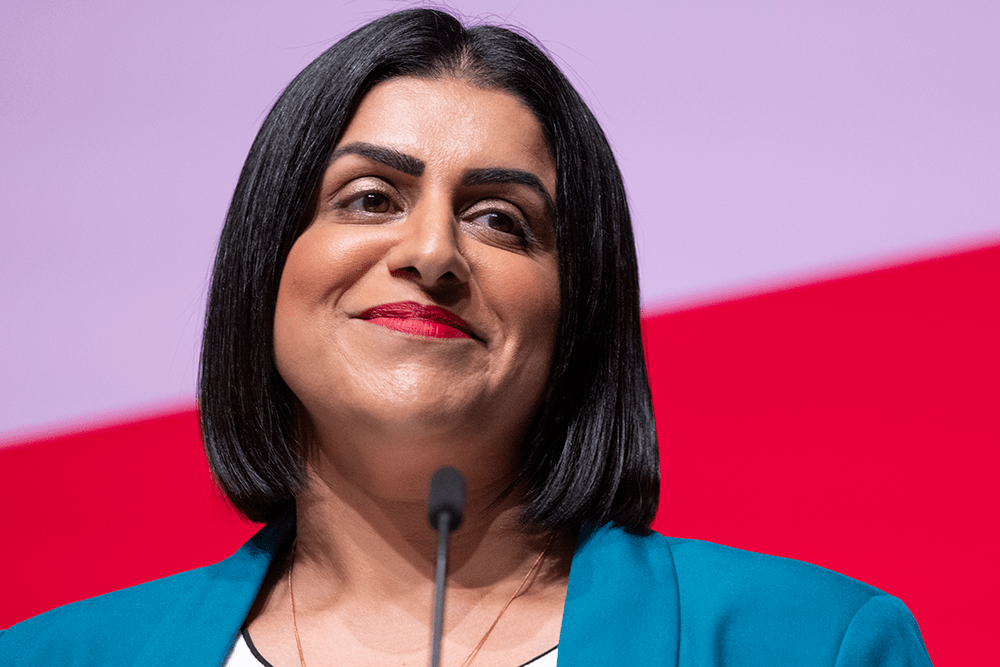
What is the point of Keir Starmer? He was the means by which the Labour party could suffocate the hard left and assume the mantle of respectability and, in due course, power. But he lacked, and has never acquired, a governing philosophy. He was handed a landslide by an electorate determined to eject the Conservatives from office with ruthless force. Yet he has contrived to forfeit the authority it lent him and now rivals the government he supplanted in unpopularity and lack of direction.
The men and women who engineered his ascent to the leadership, and delivered the majority he has acquired but does not command, have always known his limitations. The ideological flexibility, and ambition, which allowed him to serve in Jeremy Corbyn’s shadow cabinet without ever believing in Jeremy Corbyn’s project made him the perfect figure to succeed Corbyn and then marginalise him.
Those within Labour who knew the direction it must take to once more become a governing movement recognised that the party had to be weaned off its preference for protest rather than forced to go cold turkey immediately. Starmer was the party’s chosen treatment. He is a political opioid in human form: Methadone Man.
The physicians who knew what Labour had to do to become fit for office were the team behind the thinktank Labour Together – the MPs Steve Reed and Shabana Mahmood, the financier Trevor Chinn and the strategists Paul Ovenden and, above all, Morgan McSweeney. The assault McSweeney currently faces from a dispossessed Corbynite left and a revived Tory attack machine is testament to his importance as the agent who delivered, and strives to guarantee, Labour’s credibility as a government. Were Starmer to sacrifice him, it would be like Charles I abandoning the Earl of Strafford – a sign of weakness and a portent of eclipse.
The Prime Minister’s relationship with McSweeney has always been transactional, on both sides. Labour Together recognised that Starmer was the figure who could act as a bridge to office, and he accepted that they were the engineers who could build his route to power. But his politics, insofar as they exist, are not theirs.
He moves, like the lawyer he is, from brief to brief, issue to issue, seeking to discern what the rules might be in any case and applying them with the bloodless liberalism of the human rights bar. There is no overall vision, philosophy, political economy or passion. He speaks in clichés which read like lines discarded from the scripts for David Brent in The Office or Ricky Tomlinson in Mike Bassett: England Manager because they were too banal.
Starmer moves from issue to issue, applying the rules with the bloodless liberalism of the human rights bar
Labour Together, by contrast, believes in agency, action and the power of government to improve working people’s lives. It scorns the indulgences of left protest politics – the keffiyehs and trans flags – and recognises that any progressive party has to guarantee working people security, respect their identity and spend their money wisely if it is to maintain a working electoral coalition. Those insights would not have seemed revelatory to Attlee, Wilson and Blair, the Labour prime ministers who secured re-election, but they seem like deeply uncomfortable truths to many in this government.
The one member of this administration who appears not just to recognise those realities but to live and believe in them is the Home Secretary, Shabana Mahmood. She has argued, from conviction, for an energetic crackdown on migration, a national inquiry into the rape gangs scandal, condign punishment for sex offenders, zero tolerance for antisocial behaviour and an end to wasteful virtue-signalling expenditure. She has argued against indulgence of trans evangelists, Islamist extremists and human rights ideologues.
Promoted to the Home Office last month, she faces both an opportunity and a danger. It is a cliché that the department is a graveyard of ambition – not just because questions of security and our borders are fraught and high-stakes, but because the machinery at any home secretary’s disposal is rusted and inadequate. The police are led by an officer class who, as Mary Wakefield notes, forfeit public trust by pursuing trivial offences and shying away from tackling real disorder. Chief constables hide behind the doctrine of ‘operational independence’ to evade accountability and do anything but crush crime.
The Home Office’s own internal operations are a chaotic, blundering mess. The mishandling of even the pitiably inadequate ‘one-in, one-out’ migrant exchange scheme with France was a shaming joke. With tens of thousands of asylum seekers housed comfortably at taxpayers’ expense and eligible for return, the Home Office and its lawyers, after months of preparation, seemed incapable initially of finding a single candidate they could transport across the Channel.
With tools so blunted and faulty, the Home Secretary faces formidable odds in making both our streets and borders safer. But if she is true to her instincts, and determined to deliver, then she has the opportunity to restore both purpose and credibility to this government. The need for both could become increasingly urgent in the weeks and months ahead. This is Mahmood’s moment. Like her heroine, Margaret Thatcher, she should realise that there can be no turning back.







Comments